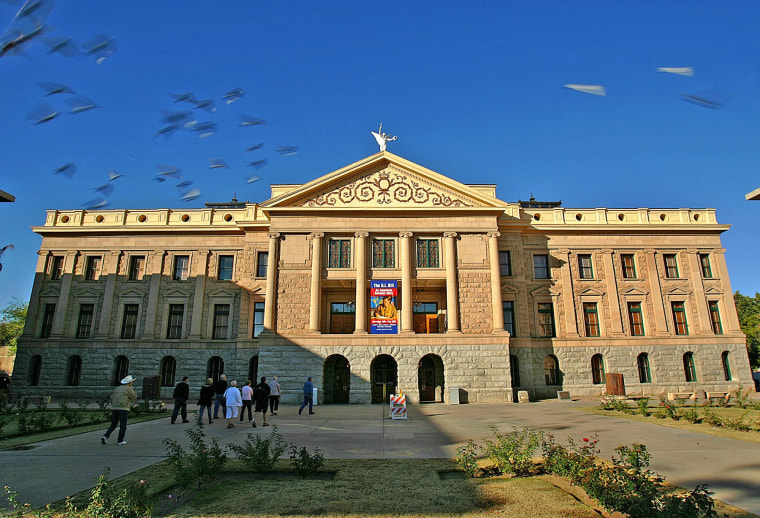Like many states, Arizona has a budget shortfall it's struggling to close. And like many states, Arizona has a Republican-run government, filled with conservative policymakers that do not believe in raising taxes on anyone, at any time, by any amount, for any reason.
As the Associated Press reported yesterday, that generally means targeting the most vulnerable.
Facing a $1 billion budget deficit, Arizona's Republican-led Legislature has reduced the lifetime limit for welfare recipients to the shortest window in the nation. Low-income families on welfare will now have their benefits cut off after just 12 months. As a result, the Arizona Department of Economic Security will drop at least 1,600 families -- including more than 2,700 children -- from the state's federally funded welfare program on July 1, 2016.
To be sure, other states have caps on the number of years a working-age American can rely on public assistance, but Arizona is the first to shrink that eligibility to a lifetime limit of just one year.
The AP piece quoted welfare policy analyst Liz Schott, who noted that cutting off assistance to the most vulnerable may offer short-term budget relief for policymakers, but these same struggling people will "likely show up in other ways that will cost taxpayers, from emergency rooms to shelters to the criminal justice system."
Of course, it's not just Arizona. In Maine, Gov. Paul LePage (R) "wants to kick poor people off food stamps and welfare if they have drug-related felony convictions and also to expand a recently enacted drug testing program." In Kansas, Gov. Sam Brownback (R) has prohibited "welfare recipients from spending their benefits at certain types of businesses, including liquor stores, fortune tellers, swimming pools and cruise ships."
The pattern isn't subtle: states looking for budget solutions find it easy to go after the poor.
In theory, this seems like a risky electoral proposition -- there are more low-income families than high-income families -- but since the poor tend not to vote, at least not when compared to those with higher incomes, their political capital is greatly diminished.
Add to the mix the conservative belief that low-income families have only themselves to blame for their plights, and an ideology that says higher taxes on the rich is necessarily dangerous, and we're left with quite a few stories like the latest report out of Arizona.
